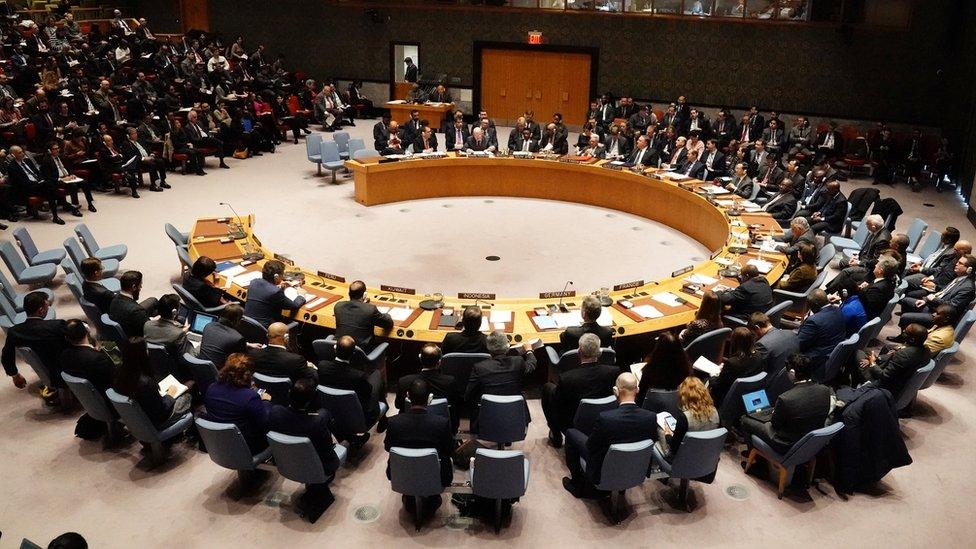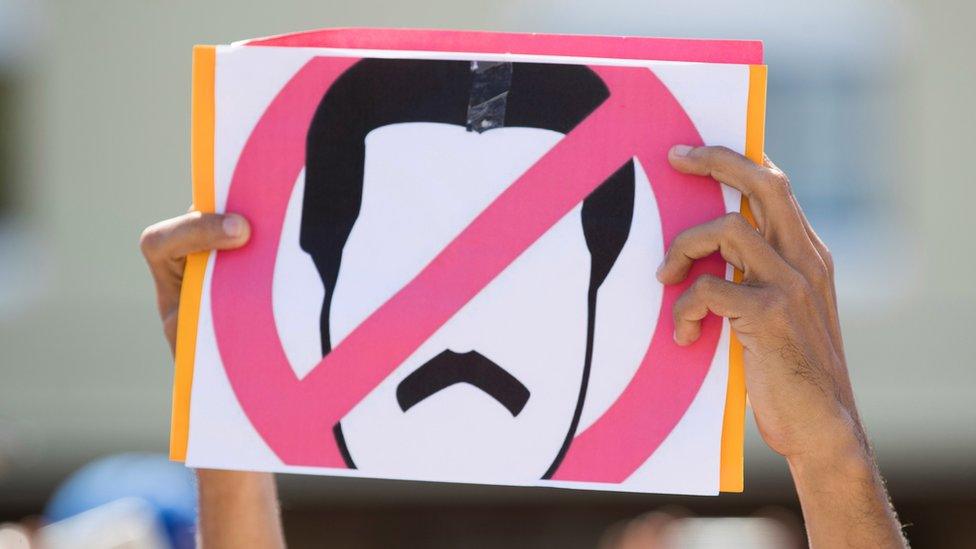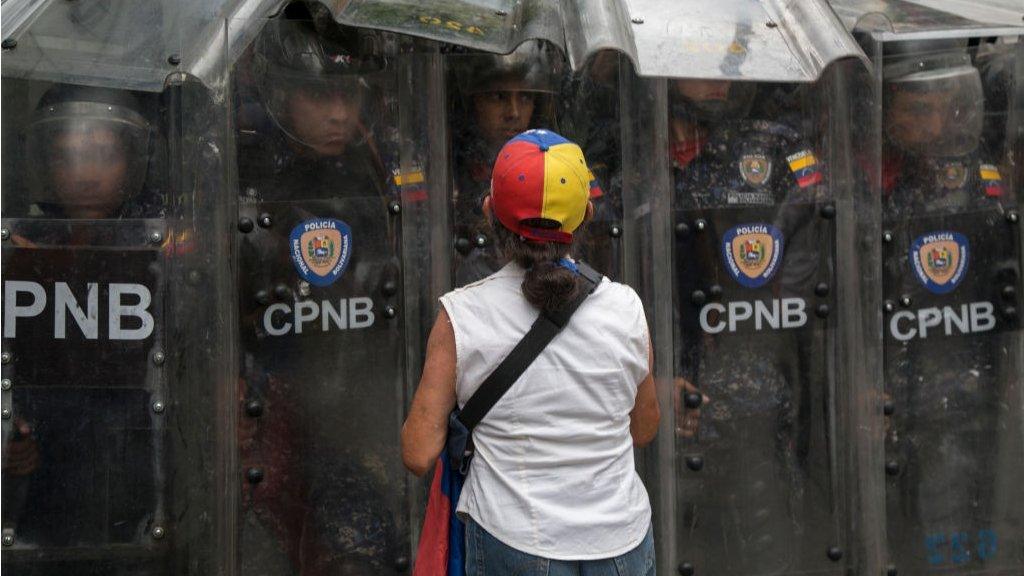Venezuela crisis: Maduro given ultimatum by European leaders
- Published
Who's really in charge in Venezuela? The BBC's Paul Adams explains
European powers have warned Venezuelan President Nicolás Maduro that he must call elections within eight days or they will officially recognise the opposition's claim of leadership.
Mr Maduro is under pressure after his rival Juan Guaidó declared himself "acting president" on Wednesday.
Several countries, including the US, already back Mr Guaidó as president.
Venezuela later rejected the ultimatum at a UN meeting, where divisions between world powers were laid bare.
Foreign Minister Jorge Arreaza told members of the UN Security Council in New York that Mr Maduro's presidency was legitimate, and the country would not be pressured into calling elections.
"Nobody is going to give us deadlines or tell us if there are elections or not," he said.
President Maduro was sworn in for a second term earlier this month after an election marred by an opposition boycott and allegations of vote-rigging, leading to large anti-Maduro protests.
He accuses Mr Guaidó, the head of the National Assembly, of mounting a coup.
Are you in Venezuela? Email your story to haveyoursay@bbc.co.uk
On Saturday, permanent Security Council members France and the UK joined Germany, Spain and other European nations in what looked like a co-ordinated demand that elections be called in Venezuela within eight days.
An EU statement was more cautious, seeking fresh elections or the bloc would take "further actions, including on the issue of recognition of the country's leadership".
Speaking on behalf of the EU, UK Foreign Office Minister Sir Alan Duncan said Venezuela needed a government "that truly represents the will of the Venezuelan people".
Allow X content?
This article contains content provided by X. We ask for your permission before anything is loaded, as they may be using cookies and other technologies. You may want to read X’s cookie policy, external and privacy policy, external before accepting. To view this content choose ‘accept and continue’.

Russia, a UN Security Council member, has said foreign support for Mr Guaidó violates international law and is a "direct path to bloodshed". China, Mexico and Turkey have also publicly backed Mr Maduro.
Also on Saturday, Venezuela's defence attache in Washington, Col José Luis Silva, said he now recognised Mr Guaidó as interim leader and that fresh elections were needed.
What happened at the UN?
Discussions at the UN on Saturday were tense as nations clashed on how to resolve the crisis in Venezuela.
US Secretary of State Mike Pompeo accused Russia and China of "propping up a failed regime" and said it was time to "support the Venezuelan people immediately".
"No more delays, no more games. Either you stand with the forces of freedom, or you're in league with Maduro and his mayhem," he said.

Nations clashed over a way forward in Venezuela's political crisis
But Russia's UN ambassador, Vassily Nebenzia, accused Washington of plotting a coup against Mr Maduro.
He said the council was not established to "support regime change" and called for further dialogue to "find a way forward".
China's representative to the UN, Ma Zhaoxu, said that while his country was committed to the "purposes and principles" of the council, the situation in Venezuela "does not constitute a threat to national security" and China "does not interfere in other countries' internal affairs".

Crunch moment for Venezuela
Analysis by James Robbins, BBC diplomatic correspondent
So, it's the US versus Russia again at the UN - this time over Venezuela. The old Cold War adversaries are sparring once more. New subject. Predictable game. It's more or less "my enemy's enemy must be my friend".
Washington says Venezuela represents a threat to peace and security in the region. Moscow says it is Washington which represents the threat, risking a descent into uncontrolled violence.
For all the war of words at the UN, this does look increasingly like a crunch moment for Venezuela and its profoundly polarised society.

Why is Maduro being challenged?
He was re-elected to a second term last year - but the elections were controversial, with many opposition candidates barred from running or jailed.
The National Assembly argues that the presidential position is actually vacant because the election was unfair - and that under the constitution this means that Mr Guaidó, as head of the National Assembly, should take over as acting president instead.
Thousands attended a rally in Caracas on Wednesday against President Maduro
Tens of thousands have held protests over Venezuela's economic crisis - including an annual inflation rate that the opposition says reached 1,300,000% last year.
Mr Maduro has so far retained the support of the country's military, but Mr Guaidó has asked them to "put themselves on the side of the Venezuelan people" and back him instead.
- Published23 January 2020

- Published24 January 2019

- Published12 August 2021
